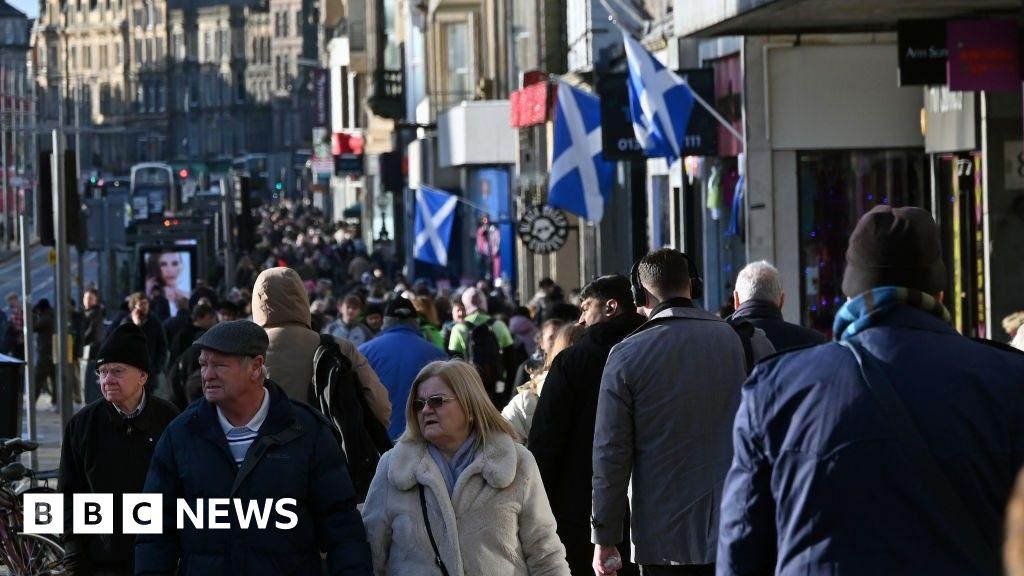Fashion
Iconic fashion brand to relaunch online after closing all Scottish stores

A POPULAR fashion brand is set to relaunch online just days after closing all of its high street stores in Scotland.
The retailer fell into administration back in March after struggling financially for several years.
Last week, Ted Baker‘s final UK high street shops shut their doors and its original website stopped taking orders.
But now, the decision to relaunch the brand and trade as an online business in the UK has come as welcome news to shoppers.
The luxury fashion label known for its suits, shirts and dresses was founded in Glasgow in 1988.
Owned by Authentic Brands Group (ABG), No Ordinary Designer Label traded as Ted Baker.
But the firm collapsed after the partnership between ABG and their Dutch operating partner, which was meant to run the store operations, went sour.
Before the company fell into administration, it employed around 975 people and had 46 shops in the UK and Europe.
After filing a notice of intention in March, 245 people lost their jobs after 15 stores across the UK closed.
Last week, the remaining 31 stores across the UK closed for the final time – five of which were located in Scotland.
It came as a huge blow to Scottish shoppers who were left gutted by the closures, with some saying it was a “big loss” to the high street.
Punters took to social media to react to the news.
One person said: “Ted Baker is an iconic retailer. This is terrible news.”
Another added: “Genuinely gutted. I love Ted Baker. I have dozens of their clothes and accessories. Hopefully the brand will find a way to continue and relaunch over time.”
Today, US-based Authentic Brand Group, said it has secured a deal with a new business partner – United Legwear & Apparel Co.
They will now run the brand’s online platform in the UK and Europe.
SCOTTISH TED BAKER STORES WHICH CLOSED LAST WEEK
- Aberdeen, Union Square Shopping Centre
- Dundee, Overgate Shopping Centre
- Edinburgh, George Street
- Glasgow, Buchanan Street
- Livingston, Designer Outlet
Jarrod Weber, global president for sports and lifestyle at Authentic, said: “Consumers value and appreciate the Ted Baker brand and its British style.
“We have had a strong start to our partnership with United Legwear and we couldn’t be more pleased to have solid partner to continue Ted Baker’s story in the place where the brand began.
He added: “United Legwear’s proven track record in translating global brands for the UK market makes them the ideal partner for expanding Ted Baker’s online presence in these important markets.”
Why are retailers closing shops?
EMPTY shops have become an eyesore on many British high streets and are often symbolic of a town centre’s decline.
The Sun’s business editor Ashley Armstrong explains why so many retailers are shutting their doors.
In many cases, retailers are shutting stores because they are no longer the money-makers they once were because of the rise of online shopping.
Falling store sales and rising staff costs have made it even more expensive for shops to stay open. In some cases, retailers are shutting a store and reopening a new shop at the other end of a high street to reflect how a town has changed.
The problem is that when a big shop closes, footfall falls across the local high street, which puts more shops at risk of closing.
Retail parks are increasingly popular with shoppers, who want to be able to get easy, free parking at a time when local councils have hiked parking charges in towns.
Many retailers including Next and Marks & Spencer have been shutting stores on the high street and taking bigger stores in better-performing retail parks instead.
Boss Stuart Machin recently said that when it relocated a tired store in Chesterfield to a new big store in a retail park half a mile away, its sales in the area rose by 103 per cent.
In some cases, stores have been shut when a retailer goes bust, as in the case of Wilko, Debenhams Topshop, Dorothy Perkins and Paperchase to name a few.
What’s increasingly common is when a chain goes bust a rival retailer or private equity firm snaps up the intellectual property rights so they can own the brand and sell it online.
They may go on to open a handful of stores if there is customer demand, but there are rarely ever as many stores or in the same places.











